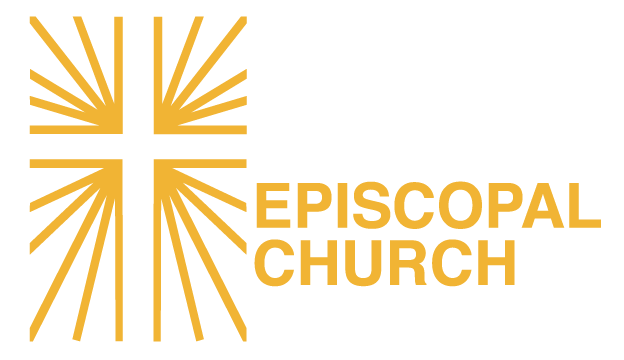The Finance Committee
According to its charter, the Finance Committee:
- Assists the bishop in the discharge of his or her responsibility to prepare the proposed annual budget of the Convocation, taking into view the mission priorities of the Convocation, resolutions of Convention, and financial and economic considerations that may affect the Convocation and its Congregations.
- Reviews and make recommendations on the annual grant and budget applications of the Convocation’s congregations, committees and commissions.
- Advises the treasurer and/or assistant treasurer as they may request in the course of the year on any financial matters arising.
- Receives regular, quarterly reports on the financial situation of the Convocation as well as a copy of the annual audit report.
- Reviews the financial section (Part II: Operating Income and Audited Financial Statement) of the Diocesan Report.
- Maintains an accurate and accessible record of all Convention resolutions and policies approved by the Council of Advice touching on the preparation of the budget, investment of Convocation assets or expenditure of its resources.
Members of the Finance Committee
- The Rt. Rev. Mark D.W. Edington – Bishop
- Denis Le Moullac – Treasurer (Cathedral of the Holy Trinity, Paris)
- Helena Mbele-Mbong – Assistant Treasurer, (Emmanuel Church, Geneva)
- The Rev. Michael Rusk – Council of Advice representative (Emmanuel Church, Geneva)
- Martin Schaeffer (Church of the Ascension, Munich)
The Charter of the Finance Committee can be found here
Grants & Funding
In order to honor a commitment to collaborative leadership and service, the Convocation views financial administration not just as a set of fiscal tools or as a necessary function, but as a ministry in itself, one that supports the spiritual and practical needs of its diverse congregations across Europe. To that end, we make certain allocations of funding available to our Congregations and ecumenical partners covering a variety of ministry topics.
Bilingual Book of Common Prayer
As a multinational and multilingual church community, we believe in making sure as many of our members can worship and pray with us comfortably in their native language as possible. Therefore a passion project of the Convocation has been to provide translations of the Book of Common Prayer (BCP) into the main languages of the Convocation (French, German, Italian and Spanish). Support this project by purchasing a copy in the language of your choice.
How We Work Together
The Convocation of Episcopal Churches in Europe is one of four Anglican jurisdictions in continental Europe. (The other Anglican jurisdictions in Europe are: the Lusitanian Church of Portugal, the Reformed Episcopal Church of Spain, and the Church of England’s Diocese of Gibraltar in Europe.) The Convocation is the jurisdiction of the Presiding Bishop and Primate of The Episcopal Church. The Episcopal Church is one of 40 provinces of the worldwide Anglican Communion and the Episcopal Church is present in 17 countries around the world.
The Bishop in Charge of the Convocation of Episcopal Churches in Europe, a suffragan bishop to the Presiding Bishop, the Most Rev. Sean W. Rowe, is based at The (American) Cathedral of the Holy Trinity in Paris. There are congregations in France, Germany, Italy, Belgium, Switzerland, Austria, and the Republic of Georgia. The Convocation functions both as a European Church with a legal corporate structure based in France, as well as being a diocesan-like jurisdiction of the Episcopal Church.
Constitution and Canons of the Convocation of Episcopal Churches in Europe
The Bishop
The Rt. Rev. Mark D.W. Edington, based at The Cathedral of the Holy Trinity in Paris, is bishop in charge of the Convocation of Episcopal Churches in Europe. A number of critical institutions and bodies work with Bishop Edington in carrying out God’s mission for the church in Europe, including:
The Annual Convention
This meeting brings together representatives of all our parishes, missions, and indigenous ministries. At the Convention the budget for the coming year is presented; four clerical and four lay deputies to the triennial General Convention are chosen; and four clerical and four lay members of the Council of Advice are elected (see Episcopal Church Canon I.15).
The Council of Advice
This group advises the bishop on all important matters of policy, and is charged with preparing the annual budget and raising funds. The Council also gives final approval to all candidates for ordination.
The Commission on the Ministry of the Baptized
With the Bishop and the Council of Advice, this group oversees the training of those preparing for lay and ordained ministries, and assists with clergy continuing education. The Commission offers conferences for everyone, including an annual discernment weekend, and a spirituality retreat.
The Children and Youth Commission
The Children and Youth Commission is responsible for critical aspects of the Convocation’s youth program, which includes youth and young adults ages 10-29, and assists parishes and missions with ministry with children of all ages.
European Institute of Christian Studies
EICS is the body in the Convocation that develops resources for lay and ordinand formation. The EICS offers weekend events for the formation and training for upcoming leaders in the Convocation, including its annual event, The Academy for Parish Leadership (APL).
The Boards of Foreign Parishes
Three boards, legally incorporated in the State of New York, administer the endowments of the Convocation and of our parishes in Florence and Rome. They also hold deed to some church properties.
All of these bodies undergird and strengthen the mission of the Episcopal Church and its congregations here in Europe. Increasingly, this mission is being shared with our Anglican brothers and sisters as we address together challenges common to all four jurisdictions on the European mainland. Similarly, our relationships are growing ever closer with Christians from other parts of the Body of Christ.

